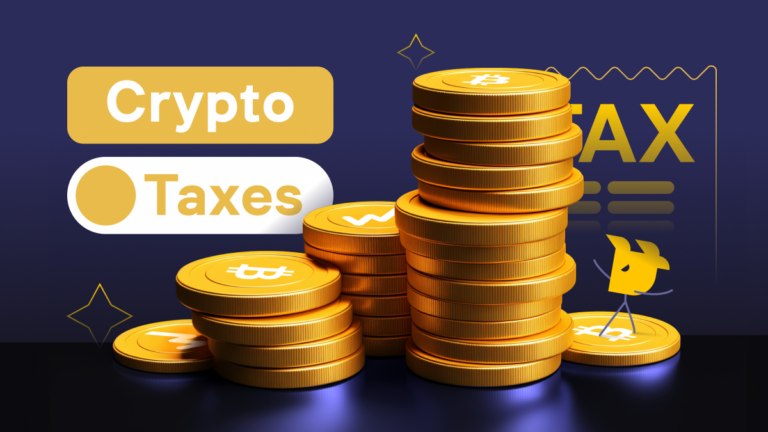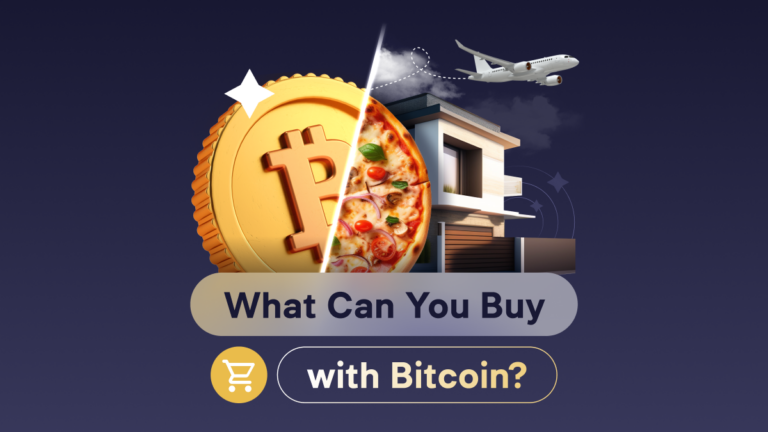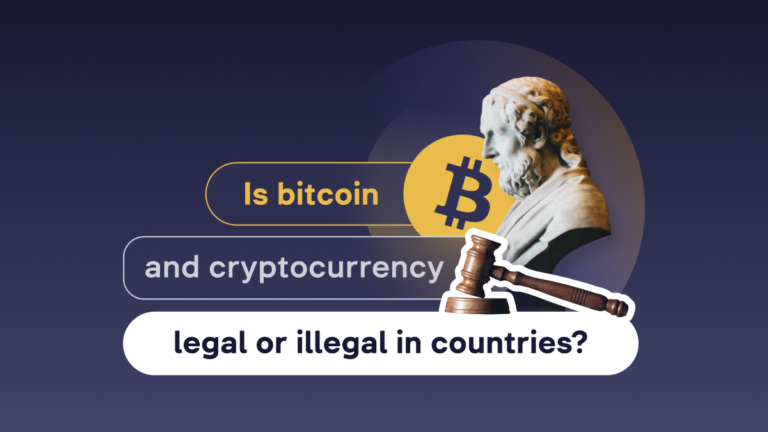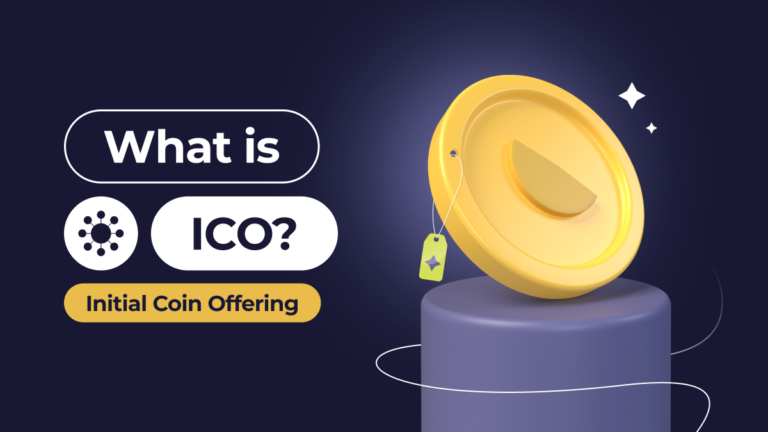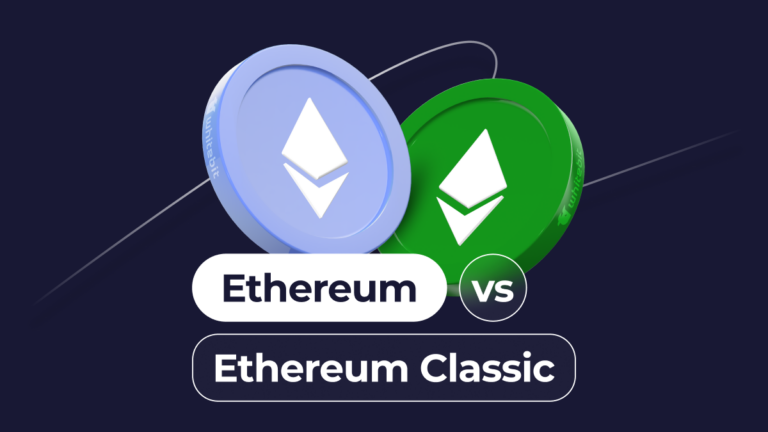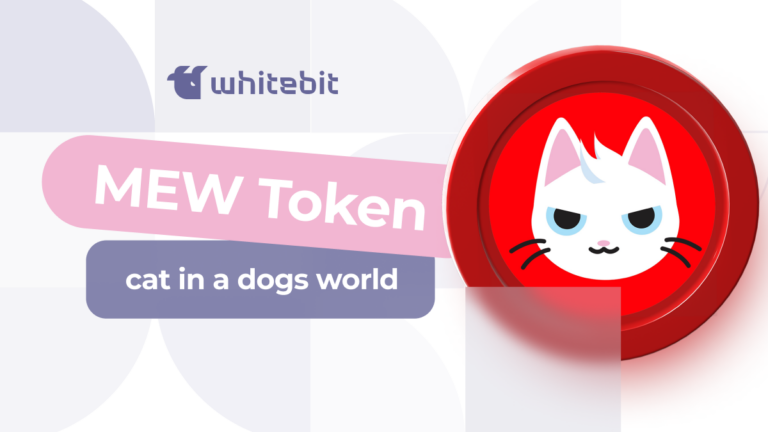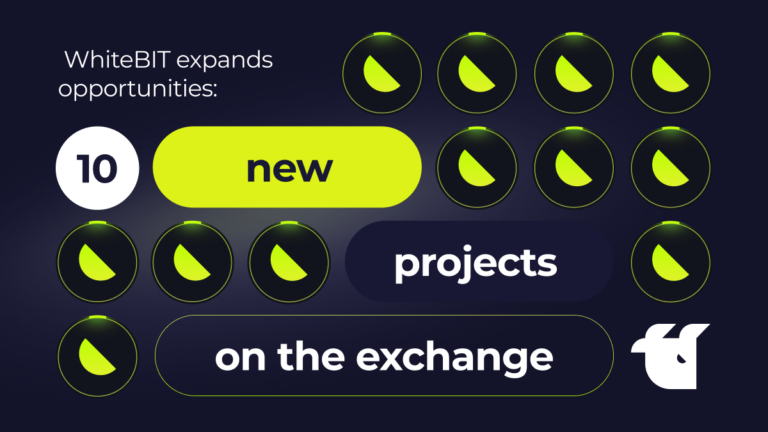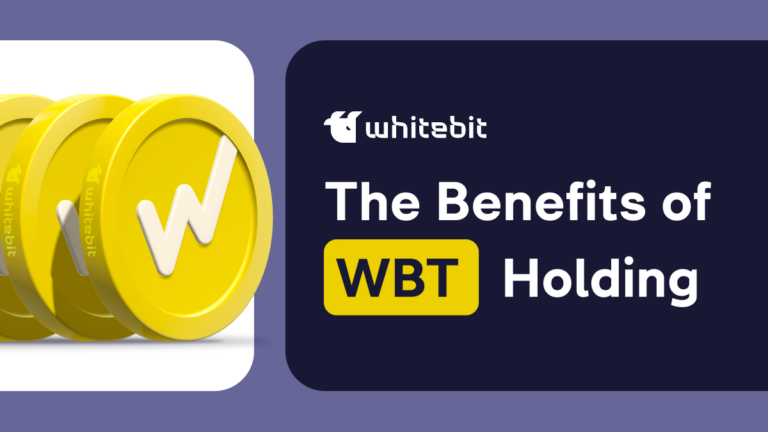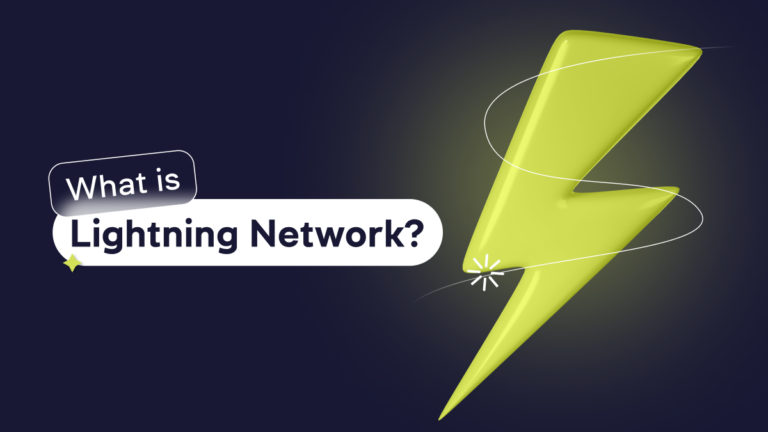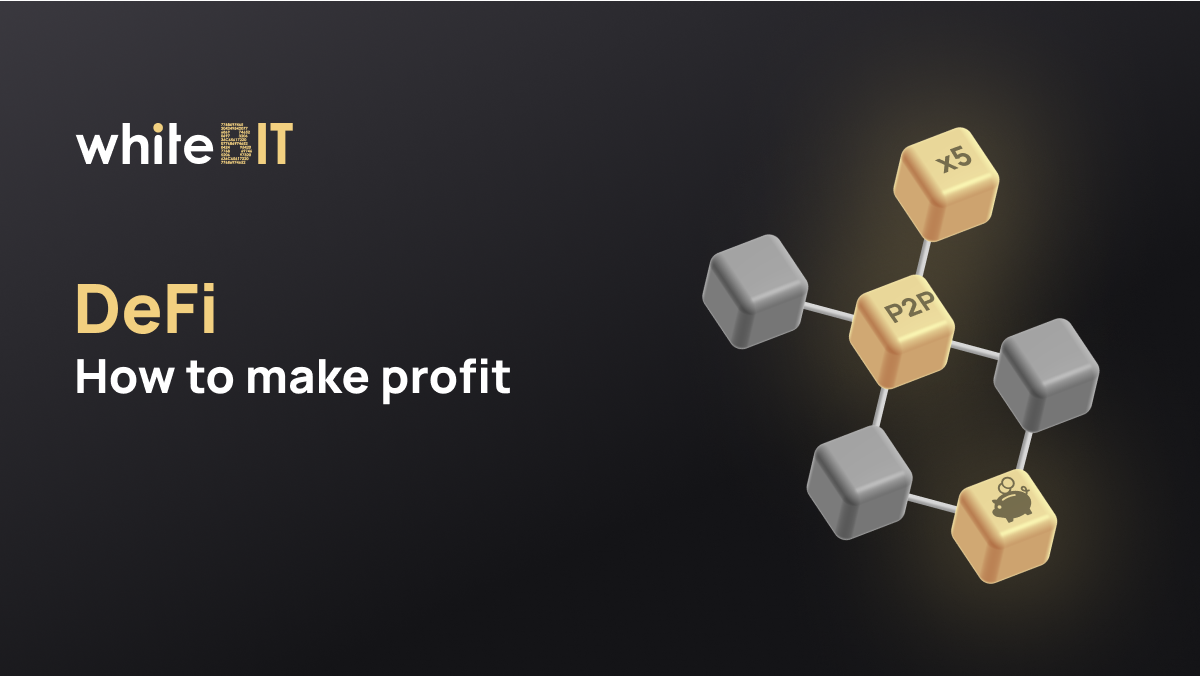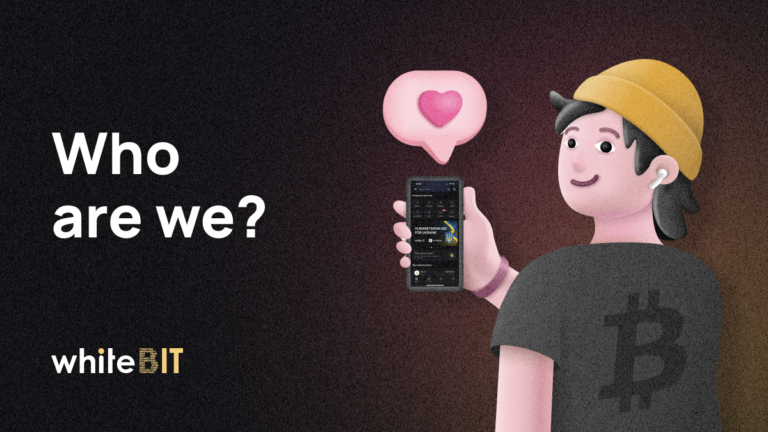What Are Altcoins in Crypto?
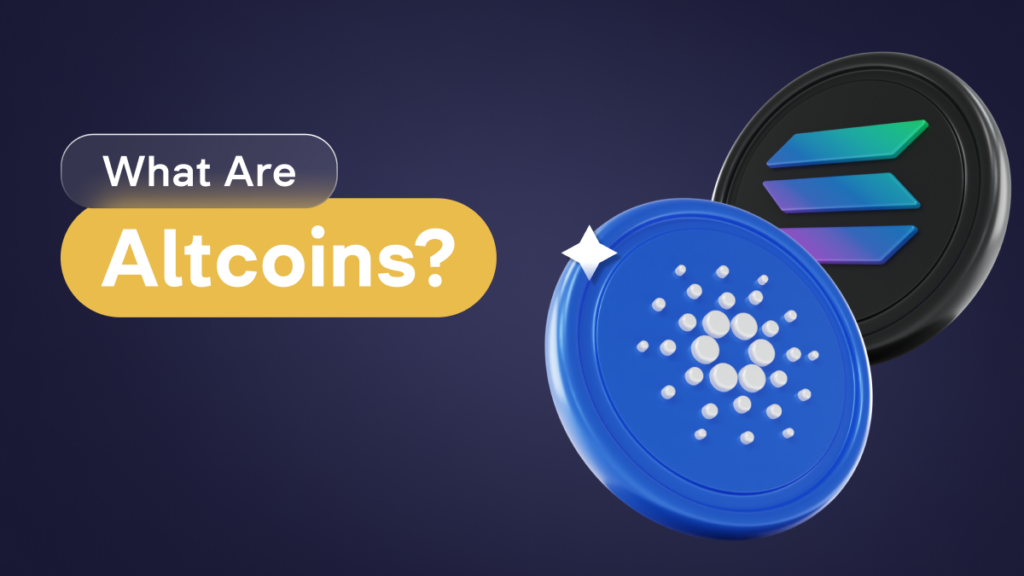
Content
- What is the Difference Between Bitcoin and Altcoins?
- Types of Altcoins
- Advantages and Disadvantages
- Where to Buy Altcoins?
- How to Buy Altcoins on WhiteBIT?
- List of the Best Altcoins to Invest In
- Should You Consider Investing in Altcoins?
- Risks and Challenges of Altcoin Investments
- The Future of Altcoins
- The Bottom Line
- FAQ
Cryptocurrency is a dynamic and evolving financial landscape, encompassing various digital assets beyond Bitcoin, known as altcoins. Understanding what is altcoin — essential for investors navigating the crypto market’s diverse opportunities and challenges. Altcoins, along with Bitcoin, are integral components of the broader blockchain technology ecosystem, including the emerging landscape of Web3. Predictions about the future of altcoins are varied, with some experts forecasting continued growth and innovation while others remain cautious about potential risks and challenges.
In this article, we’ll delve into the definition of altcoins, providing examples to elucidate their meaning and how they contribute to the crypto landscape.
What is the Difference Between Bitcoin and Altcoins?
Bitcoin is the pioneer and most prominent cryptocurrency, while altcoins offer alternative features and use cases. Altcoin market cap presents a plethora of alternatives with distinct features. They are built upon the same foundational principles of blockchain technology, enabling decentralized and immutable transactions.
Types of Altcoins
PoW (Mining-Based) Altcoins
Proof of Work (PoW) altcoins rely on mining, a process where participants compete to solve complex mathematical puzzles to validate transactions and secure the network. This process is fundamental to the creation and distribution of altcoins. Day trade strategies are often employed by investors looking to capitalize on short-term price movements in PoW altcoins.
PoS (Staking-Based) Altcoins
Proof of Stake (PoS) altcoins operate on a consensus mechanism where validators are chosen to create new blocks and validate transactions based on the number of coins they hold and are willing to “stake” as collateral. Staking offers an alternative approach to mining and contributes to the security and decentralization of the network. How to create staking pools and participate in PoS altcoin networks is a topic of interest for many crypto enthusiasts.
Stablecoins
Stablecoins are cryptocurrencies providing stability by pegging their value to fiat currencies or other assets, making them less volatile compared to other altcoins. They serve as a reliable store of value and medium of exchange within the cryptocurrency volatility ecosystem.
DeFi Altcoins
Decentralized Finance (DeFi) altcoins facilitate various financial services such as lending, borrowing, and trading, operating without intermediaries like banks. They leverage blockchain technology to create open and accessible financial infrastructure, challenging traditional financial systems.
Payment Tokens
Payment token is an altcoin designed for facilitating transactions and payments, aiming to improve upon traditional payment systems. They offer fast and low-cost transactions, catering to merchants and consumers seeking efficient payment solutions within the altcoin portfolio ecosystem.
Security Tokens
Security altcoins represent ownership in real-world assets and are subject to regulatory compliance akin to traditional securities. They tokenize assets such as real estate, stocks, and commodities, providing fractional ownership and liquidity on altcoin exchange.
Utility Tokens
Utility altcoins provide access to a specific product or service within a blockchain ecosystem, often utilized in decentralized applications (dApps). They enable users to interact with types of cryptocurrency protocols and applications, driving adoption and network usage.
Meme Coins
Meme altcoins gain popularity through viral memes and internet culture, often lacking utility beyond their entertainment value. Despite their speculative nature, they contribute to community engagement and awareness within the altcoin rate ecosystem.
Governance Tokens
Governance altcoin cryptocurrency grants holders the right to participate in decision-making processes within a blockchain network. They enable decentralized governance and community-driven development, empowering token holders to shape the future of altcoin wallet projects.
Advantages and Disadvantages
Advantages of Altcoins
- Diversification: Cryptocurrency altcoins offer a diverse range of investment opportunities beyond Bitcoin;
- Innovation: Many altcoins pioneer innovative technologies and concepts within the crypto space;
- Potential for Higher Returns: Some altcoins may experience rapid price appreciation, leading to potentially higher profits compared to established cryptocurrencies. However, investors should be mindful of Bitcoin domination and market dynamics;
- Bull Run: Now, it’s important to note the phenomenon of bull run in the altcoin market. When investors witness a surge in news surrounding certain altcoins, it often signifies the onset of a bull run, where prices skyrocket, offering significant opportunities for profit;
- Arbitrage: Experienced traders might leverage arbitrage opportunities within the altcoin market. Arbitrage involves exploiting price discrepancies of the same asset across different exchanges, allowing traders to profit from the variation.
Disadvantages of Altcoins
- Higher Risk: All altcoins are generally riskier investments due to their lower liquidity and higher volatility compared to Bitcoin;
- Lack of Regulation: Many altcoins operate in regulatory gray areas, subjecting investors to potential legal risks;
- Market Manipulation: The altcoin market is susceptible to pump and dump schemes and other forms of market manipulation, highlighting the importance of due diligence and risk management.
Where to Buy Altcoins?
To purchase altcoins, investors can utilize various cryptocurrency exchanges, decentralized exchanges (DEXs), and peer-to-peer (P2P) platforms. Before choosing a method for yourself, you should study the various advantages of trading platforms, such as altcoin buy price, user-friendliness of the interface and much more.
Altcoin price fluctuates significantly due to market dynamics and trader sentiment. Therefore, investors should conduct thorough research before making investment decisions, utilizing tools such as altcoin chart analysis and market indicators.
How to Buy Altcoins on WhiteBIT?
To acquire digital assets on WhiteBIT, you have two options: utilizing the exchange feature or executing a trading order. However, prior to engaging in any transactions, you’ll need to create an account, undergo a brief verification process, and deposit funds into your account.
To buy altcoin crypto on the WhiteBIT exchange, investors can follow these steps:
- In the upper left corner of the menu, select the Trading tab, and in it, click on “Spot”;
- Select the trading pair from the list on the terminal’s right side;
- At the bottom of the terminal, select the order type;
- In the Amount field, enter the desired quantity of the asset and click “Buy;”
- The funds will be accrued to your balance immediately.
Alternatively, you can utilize the Convert tab within the Trading section. Simply specify the cryptocurrency you wish to exchange and the one you desire to receive. Input the amount of the asset you’re exchanging in the “I give” field, then click “Exchange” to proceed.
With over 350 trading pairs available on WhiteBIT, our platform boasts substantial liquidity pools, facilitating seamless execution of significant trading transactions.
List of the Best Altcoins to Invest In
When considering which altcoin to buy, Ethereum (ETH) stands out as one of the best altcoins to buy in due to its robust ecosystem, smart contract capabilities, and widespread adoption.
In general, the altcoin list can be endless, but we have selected the top ones for you. Among the most perspective altcoins to buy you can see:
Ethereum (ETH)
Ethereum is a leading altcoin known for its smart contract functionality, enabling decentralized applications (DApps) and the creation of other tokens. Its large ecosystem and adoption make it a solid investment choice.
Cardano (ADA)
Cardano is a blockchain platform known for its focus on scalability, interoperability, and sustainability. With a strong team and innovative technology, ADA has gained attention as a promising altcoin for long-term investment.
Chainlink (LINK)
Chainlink is a decentralized oracle network that connects smart contracts with real-world data. Its ability to provide reliable data feeds to blockchain applications makes it a crucial component in the decentralized finance (DeFi) space, contributing to its potential for growth.
Polkadot (DOT)
Polkadot is a multi-chain blockchain platform that enables different blockchains to transfer messages and value in a trust-free fashion. Its interoperability and scalability features make it attractive for developers, investors, and projects seeking to build scalable decentralized applications, making it a promising altcoin investment.
WhiteBIT Coin (WBT)
WBT is the native coin of the WhiteBIT exchange, one of the largest cryptocurrency exchanges in Europe. It offers various benefits within the WhiteBIT ecosystem, including trading fee discounts, daily free AML-checks, and ERC20 withdrawals. With its integration into all WhiteBIT services and the exchange’s growing user base, WBT presents itself as a promising investment opportunity.
Should You Consider Investing in Altcoins?
Altcoins vs Bitcoin
While Bitcoin remains a popular choice for many investors seeking stability and store of value, altcoins offer unique opportunities for diversification and potentially higher returns.
Altcoins vs Stablecoins
Unlike stablecoins, which aim to maintain a stable value, crypto altcoins are subject to market fluctuations and can experience significant price volatility.
Risks and Challenges of Altcoin Investments
- Market Volatility: Altcoins are known for their volatility, posing risks of substantial price fluctuations;
- Regulatory Uncertainty: Regulatory changes can impact the legality and viability of certain altcoins;
- Lack of Fundamental Value: Some altcoins lack intrinsic value or viable use cases, leading to speculative bubbles and price crashes.
The Future of Altcoins
The future of altcoins remains uncertain, with ongoing advancements in blockchain technology and regulatory developments shaping their trajectory. However, altcoin adoption is likely to continue growing, driven by innovation and demand for alternative financial solutions.
The Bottom Line
In conclusion, altcoins represent a diverse array of digital assets beyond Bitcoin, offering unique investment opportunities and challenges. While investing in altcoins can be profitable, it’s crucial to conduct thorough research, manage risks effectively, and stay informed about market trends and developments, especially regarding altcoin season and сrypto faucet strategies.
FAQ
An altcoin is any cryptocurrency other than Bitcoin, encompassing a wide range of digital assets with diverse features and functionalities.
There are thousands of altcoins available in the market, with new ones being created regularly.
The best altcoin to invest in depends on individual investment goals, risk tolerance, and market conditions. Ethereum (ETH) is a popular choice due to its robust ecosystem and widespread adoption.
Timing the purchase of altcoins is challenging and depends on various factors such as market trends, price analysis, and investor sentiment. It's essential to conduct thorough research and analysis before making any investment decisions.

